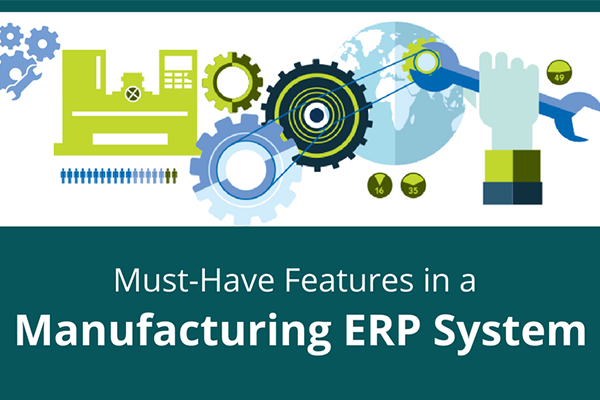What is ERP?
Enterprise Resource Planning or ERP is a system that brings together all core business processes into a unified database. The system further creates a holistic dashboard to deliver connected functioning. Such a connected business platform facilitates the coordination of activities and processes between diverse business functions from a central location. It also enables the creation of a unified record-keeping system and helps in running end-to-end operations.
At a very fundamental level, an ERP system links business processes such as purchase, production, supply chain, CRM, Sales, and HR, cohesively. Modern intelligent ERP leverages technologies like IoT, Machine Learning, AI and cloud to gain real-time inputs and facilitate monitoring to deliver superior performance.
How does ERP work?
ERP software comprises various features that help in managing primary business functions such as accounting and finance, CRM, Sales and marketing, Manufacturing, HRM, Supply Chain Management, Services and compliances. At times, such features are referred to as modules or applications, and such modules focus on only one type of operation such as payroll management. An ERP system brings them all under a single central system to provide interconnectivity and improve performance.
ERP software for manufacturing
Numerous manufacturing-related functions need to be streamlined and automated to improve core business and the manufacturing processes. ERP software for manufacturing is built into the same databases that govern routine business functions and applications and creates a holistic business management system.
Who Needs ERP for manufacturing?
All manufacturing businesses need ERP that offers them industry-relevant features and offers abilities to manage, monitor, collaborate and link various steps through automation, right from the receipt of an order to shipment and delivery of the same.
Benefits of ERP for manufacturing
There are several benefits that ERP for construction or manufacturing sector companies can offer:
- Increased Productivity– Automation can optimise your business processes and lead to an increase in productivity
- Operational Visibility– The single window of operation provides complete visibility of business operations
- Real-time Reporting– Allows you to take actions based on insights and facilitate sharing of real-time business and financial reporting
- Reduce Risk– Prediction and prevention of risk with operational visibility and control to ensure compliance of regulatory needs
- Simplify IT– Simplify IT with integrated ERP applications that operate on a unified database
- Enhance Agility– Faster identification of new opportunities with agility and organisational efficiency
Why is Manufacturing ERP Important for My Business?
Manufacturing ERP has genuine and long-term value for your business. It will allow you to manage your core business functions, manufacturing operations, inventory management, management of daily finances and accounting, and provides various advantages that generic ERP has.
- Tracking of raw materials, resource allocation and planning of production process
- Superior management of manufacturing process from end-to-end
- Schedule tasks based on available raw materials by allocating machine time and work hours
- Management of daily finances and creation of custom reports and tracking of job costs
- Monitoring the inventory of finished goods received and shipped
- Receipt, scanning and storage of products with the transparency of each item’s location throughout the warehouse
- Quality control checkpoints to ensure fulfilment of customer specifications
Signs you are ready for ERP
It is time for your business to switch to an advanced cloud-based ERP if you are having:
- Trouble meeting expectations
- Identifying business profitability
- Data error
- Restricted access to real-time data
- Trouble understanding opportunities






